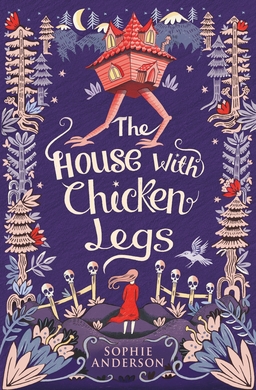
The Völsunga saga is a legendary saga, a late 13th-century prose rendition in Old Norse of the origin and decline of the Völsung clan. It is one of the most famous legendary sagas and an example of a "heroic saga" that deals with Germanic heroic legend.

Jeanette Winterson is an English author.
The Guardian Children's Fiction Prize or Guardian Award was a literary award that annual recognised one fiction book written for children or young adults and published in the United Kingdom. It was conferred upon the author of the book by The Guardian newspaper, which established it in 1965 and inaugurated it in 1967. It was a lifetime award in that previous winners were not eligible. At least from 2000 the prize was £1,500. The prize was apparently discontinued after 2016, though no formal announcement appears to have been made.
The Nestlé Children's Book Prize, and Nestlé Smarties Book Prize for a time, was a set of annual awards for British children's books that ran from 1985 to 2007. It was administered by BookTrust, an independent charity that promotes books and reading in the United Kingdom, and sponsored by Nestlé, the manufacturer of Smarties candy. It was one of the most respected and prestigious prizes for children's literature.
Gillian Claire Cross is a British author of children's books. She won the 1990 Carnegie Medal for Wolf and the 1992 Whitbread Children's Book Award for The Great Elephant Chase. She also wrote The Demon Headmaster book series, which was later turned into a television series by the BBC in January 1996; a sequel series was produced in 2019.

Charlotte Sally Potter is an English film director and screenwriter. She is best known for directing Orlando (1992), which won the audience prize for Best Film at the Venice Film Festival.
Melvin Burgess is a British writer of children's fiction. He became famous in 1996 with the publication of Junk, about heroin-addicted teenagers on the streets of Bristol. In Britain, Junk became one of the best-known young adult books of the decade. Burgess won the annual Carnegie Medal from the Library Association, recognising the year's best children's book by a British author. For the 10th anniversary in 2007 it was named one of the top ten Medal-winning works, selected by a panel to compose the ballot for a public election of the all-time favourite.

Setting Free the Bears is the first novel by American author John Irving, published in 1968 by Random House.
Wendy Boase born in Melbourne, Australia, she was one of the co-founders of the children's publishing company Walker Books. She held the position of editorial director of Walker Books until her death in 1999 from cancer. The Branford Boase Award is in part named after her. Wendy Boase helped Henrietta Branford to write the novel Fire, Bed, and Bone which won the Guardian Children's Fiction Prize. She was also involved with the publication of Lucy Cousin's popular Maisy picture book series for young children.

Maggie O'Farrell, RSL, is a novelist from Northern Ireland. Her acclaimed first novel, After You'd Gone, won the Betty Trask Award, and a later one, The Hand That First Held Mine, the 2010 Costa Novel Award. She has twice been shortlisted since for the Costa Novel Award for Instructions for a Heatwave in 2014 and This Must Be The Place in 2017. She appeared in the Waterstones 25 Authors for the Future. Her memoir I Am, I Am, I Am: Seventeen Brushes with Death reached the top of the Sunday Times bestseller list. Her novel Hamnet won the Women's Prize for Fiction in 2020, and the fiction prize at the 2020 National Book Critics Circle Awards. The Marriage Portrait was shortlisted for the 2023 Women's Prize for Fiction.
Marcus Romer is a British actor, director and screenwriter.

Beneath The Bleeding (2007) is a crime novel by Scottish author Val McDermid, the fifth featuring her recurring protagonist, Dr. Tony Hill and his police partner Carol Jordan. The books were successfully adapted into the television series Wire in the Blood., starring Robson Green and Hermione Norris.

Anthony John McGowan is an English author of books for children, teenagers and adults. He is the winner of the 2020 CILIP Carnegie Medal for Lark.
Julia Eccleshare MBE is a British journalist and writer on the subject of children's books. She has been Children's Books editor for The Guardian newspaper for more than ten years, at least from 2000. She is also an editorial contributor and advisor for the website Love Reading 4 Kids. She is a recipient of the Eleanor Farjeon Award.

Morfydd Clark is a Swedish-born Welsh actress. She is best known for playing Galadriel in the Amazon Prime series The Lord of the Rings: The Rings of Power (2022–). She received a number of accolades for her performance in the film Saint Maud (2019), including a BAFTA Cymru as well as BIFA and BAFTA Rising Star Award nominations.
Paula Brackston is the New York Times bestselling author of The Witch's Daughter and other historical fantasy novels. She also writes the fantasy crime Brothers Grimm Mystery series under the pseudonym P. J. Brackston.
Helena Janeczek is an Italian novelist of Polish Jewish origin.

The House with Chicken Legs is a 2018 middle-grade fantasy novel by Sophie Anderson, illustrated by Elisa Paganelli. Inspired by traditional Baba Yaga tales, the novel follows a young girl, Marinka, who lives with her grandmother in a magical, sentient house, traveling the world while her grandmother helps support and guide newly deceased people to the afterlife.
Chetna Maroo is a British Indian author. Her debut novel, Western Lane, was shortlisted for the 2023 Booker Prize.
Rebecca Wait is a British writer. She has written four novels, selling her debut, The View On The Way Down, to Picador at the age of 24. She has contributed to New Statesman and The Independent. She currently lives in London.









